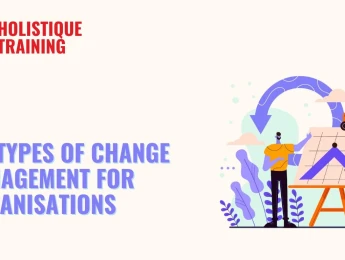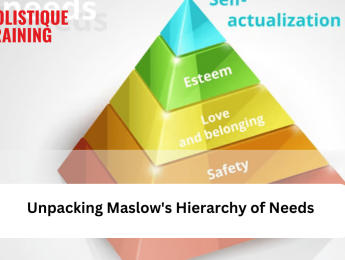- Table of Contents
- Introduction:
- 1. The Rise of Digital Learning Ecosystems
- Implications for business administration education
- 2. Integration of Artificial Intelligence and Data Analytics
- What this means for programmes
- 3. Experiential and Project-Based Learning Models
- Key features of this trend
- 4. Emphasis on Sustainability and ESG (Environmental, Social, Governance)
- What business administration education is doing
- Table 1: Traditional vs Modern Business Administration Education Models
- 5. Cross-Disciplinary and Human-Centric Business Education
- Implications for programmes
- 6. Globalisation and Cultural Intelligence
- Key dimensions of this trend
- 7. Focus on Entrepreneurship and Innovation Labs
- What’s changing
- 8. Diversity, Inclusion and Gender Equity in Business Education
- Key aspects
- 9. The Future of Credentials:
- What this means
- Table 2: Key Future Skills for Business Administration Graduates
- 10. Leadership Redefined: Emotional, Ethical and Adaptive Leadership
- What programmes are doing
- Conclusion:
Introduction:
Business administration education has entered a period of transformational change. What once comprised traditional classroom-based programmes delivering strategy, finance and marketing fundamentals is now evolving rapidly under the influence of digital disruption, globalisation, sustainability imperatives and the rising expectations of employers. For institutions and learners alike, the question is no longer “Should we do an MBA?”, but rather “How can business education equip leaders and managers for the complexities of tomorrow?”
In regions such as the Middle East, this evolution is particularly visible. Strong investment in higher education, government-led economic diversification strategies, and an expanding global outreach of business schools are accelerating change. For example, the Middle East has been cited as “one of the fastest-growing regions for AACSB-accredited business schools” in recent years.
For the UK and European markets, business education must also adapt — combining traditional rigour with flexibility, digital capabilities and relevance to a rapidly shifting business environment. In this article, we explore ten major trends shaping business administration education today, especially as they relate to the Middle East and UK contexts, and finally showcase how modern programmes (including at Holistique Training) are responding.
1. The Rise of Digital Learning Ecosystems
One of the most conspicuous shifts in business education is the move from physical, campus-only programmes towards comprehensive digital learning ecosystems: online modules, hybrid delivery, micro-credentials, virtual networking, and lifelong learning platforms. Traditional on-campus MBAs now increasingly coexist with modular part-time, online or blended pathways.
In the Middle East, for instance, higher education providers are leveraging online platforms to reach international students, while UK-based institutions offer flexible models to meet the demands of working professionals. The advantage is clear: learners gain access to high-quality instruction regardless of geography, with interactive content, simulation tools and virtual collaboration embedded.
According to recent commentary , the future of business education lies in specialisation, industry integration, AI-driven learning and digital leadership.
Implications for business administration education
- Curriculum designers must embed digital-first pedagogy: asynchronous modules, mobile access, interactive simulations.
- Schools must support global virtual networking: bringing together learners from the Middle East, UK and beyond.
- Credential models must allow stacking of micro-certificates, enabling learners to build towards a full qualification over time.
- For working professionals, flexible timing and modular delivery are now expected rather than optional.
In short, business education is no longer simply “attend lectures for two years” — it is about entering an ecosystem of learning that can continue well beyond graduation.
2. Integration of Artificial Intelligence and Data Analytics
A key trend reshaping business administration programmes is the centrality of artificial intelligence (AI), machine learning, and data analytics. Organisations across the Middle East and UK are demanding leaders who are not only fluent in spreadsheets and PowerPoint but can interpret data, make AI-informed decisions and lead digital transformation.
The AACSB International notes that business schools must “provide students with digital and human skills” to remain relevant in today’s business environment. Moreover, research indicates business education is no longer just about management theories, but about equipping learners to work with complex data and challenge traditional paradigms.
What this means for programmes
- Core modules in business administration now commonly include “Business Analytics for Managers”, “AI Strategy”, “Big Data and Business Insights”.
- Simulation tools using AI, virtual internships and data-rich case studies are becoming standard.
- In the Middle East specifically, executive-level programs are teaching AI in the context of business transformation.
- Soft skills remain important, but are now complemented by strong data literacy.
For aspiring business administrators, being comfortable with analytics, interpreting dashboards, asking the right questions of data, and leading in a digitally enabled environment will distinguish the modern manager.
3. Experiential and Project-Based Learning Models
Another major shift is the growing emphasis on experiential learning. Rather than purely theoretical lectures, leading business administration programmes are embedding real-world projects, corporate partnerships, business simulations and live case studies.
This trend is particularly significant in the Middle East, where business schools are collaborating with industry to deliver consulting projects, start-up incubators and live challenges. Investment in experiential education is a reflection of employers’ demand for graduates who can “hit the ground running”.
Key features of this trend
- Student teams may work directly with regional firms (e.g., in Dubai or Riyadh) on real business issues, under faculty supervision.
- Business simulation programmes (for strategy, marketing, operations) are more integrated into curricula.
- Entrepreneurship labs, incubation hubs and innovation centres within business schools provide hands-on exposure.
- Reflective learning and coaching are added layers: students learn not just what to do, but how to think and act.
As business administration education moves from “what” to “how”, this trend underscores a shift from knowledge-transmission to capability-development. Learners leave programmes having applied tools in authentic settings, thus shortening the readiness gap for the workplace.
4. Emphasis on Sustainability and ESG (Environmental, Social, Governance)
Sustainability and ESG issues are no longer niche subjects for business schools — they are central to the identity of modern business administration education. Companies in the Middle East, UK and globally are under pressure to embed sustainable practices, demonstrate governance, and integrate social purpose into the core of business. Education must respond accordingly.
According to industry commentary, today’s MBA and business-admin programmes reflect an increased emphasis on technology, sustainability, and adaptive skills. In the Middle East, where economic diversification and national visions (e.g., Saudi Vision 2030, UAE initiatives) are emphasising sustainable growth, business schools are aligning curricula accordingly.
What business administration education is doing
- Offering dedicated modules on sustainability leadership, circular economy, and ESG reporting.
- Embedding sustainable business cases (for example, in Middle Eastern contexts such as renewable energy, smart cities).
- Enabling cross-disciplinary work (see next section) to bring together business, social sciences and sustainability.
- Encouraging capstone projects focussed on CSR, social entrepreneurship and impact measurement.
For students and professionals, this means that mastering sustainability is now a core leadership competency — not optional. Business administration programmes must equip learners to think beyond profit and adopt a purpose-driven mindset.
Table 1: Traditional vs Modern Business Administration Education Models
Element | Traditional Model | Modern Model |
Delivery | On-campus, full-time | Hybrid/online, modular, lifelong |
Curriculum Focus | Finance, marketing, operations | Analytics, AI, sustainability, global mindset |
Learning Approach | Lectures & case studies | Simulations, live projects, industry partnerships |
Credential | Fixed ‐ term degree | Stackable micro-credentials, continuous learning |
Geographical Scope | Local/national cohorts | Global cohorts, virtual campuses, international teams |
Leadership Skillset | Technical + strategic | Data literate + digitally enabled + socially aware |
5. Cross-Disciplinary and Human-Centric Business Education
Business administration education is increasingly recognising that the “business person” of the future needs a blend of disciplines — not just finance and marketing, but psychology, design thinking, behavioural economics, ethics and human-centred leadership. This is especially relevant in multicultural contexts like the Middle East and UK, where leaders must navigate diverse teams, hybrid working models and shifting workforce expectations.
The need to widen skill-sets and challenge fixed leadership styles is emphasised in leadership-development research. Business schools are responding: modules on emotional intelligence, story-telling in business, inclusive leadership, ethical decision-making are becoming standard.
Implications for programmes
- Courses incorporate human-centred design, service-design thinking, and interaction-design for business contexts.
- In regions like the Gulf, cultural intelligence (understanding local norms, Arab business contexts) is integrated alongside global frameworks.
- This trend supports the shift from “functional manager” to “adaptive leader”.
By blending business with humanities and human-centric disciplines, business administration education is preparing learners for the complexity of modern leadership — where technology, culture, purpose and people intersect.
6. Globalisation and Cultural Intelligence
In an interconnected world, business administration education must prepare managers for cross-border operations, multi-cultural teams, global markets and remote/hybrid collaboration. The Middle East and the UK are both at global crossroads — the Gulf as a business hub between Asia, Africa and Europe; the UK as a traditional global education destination and international business centre.
Statistics show the Middle East region expanding its role as global business-school hub: for example, the region posted rapid growth in AACSB-accredited business schools in recent years. Moreover, education providers are increasingly designing programmes with international modules, exchange options and global team projects.
Key dimensions of this trend
- Multi-campus programmes or global immersions: students may spend time in Dubai, London, Singapore, etc.
- Cultural intelligence modules: how to lead across national cultures, manage remote global teams, navigate regulatory diversity.
- Virtual global classrooms: business administration programmes deploy online teamwork spanning continents.
- Regional context-specific teaching: Middle East programmes may include modules on G20 relations, Gulf economies, emerging markets.
For learners, having a global mindset is now non-negotiable. Business administration education that limits itself to a single national lens may struggle to prepare graduates for the realities of global commerce.
7. Focus on Entrepreneurship and Innovation Labs
Business schools are no longer just academic teaching houses — many have become innovation hubs, incubators and entrepreneurial ecosystems. The modern business administration programme often enables students to conceive, launch and scale ventures, embed design thinking and practice lean startup methodologies.
In the Middle East, entrepreneurial initiatives are thriving: governments and higher education institutions incentivise start-ups, innovation centres and business accelerators all link into business education. (For example, many Gulf universities partner with innovation parks and government funds.)
What’s changing
- Business administration programmes include modules on venture creation, business modelling, innovation strategy and startup financing.
- Innovation labs and accelerators affiliated with the school provide incubation resources: mentorship, investor access, co-working space.
- Collaboration with industry and government: students work on real innovation challenges posed by firms or public agencies.
- Entrepreneurship mindset: programmes focus less on managing existing firms, more on creating new ones or transforming business models.
As markets evolve rapidly — especially in the Middle East where new sectors (technology, entertainment, logistics, renewables) are emerging — business administration education that fosters innovation and entrepreneurial thinking adds real value for graduates and employers alike.
8. Diversity, Inclusion and Gender Equity in Business Education
The business and education worlds are rightly placing stronger emphasis on diversity, inclusion and gender equity. Business administration education is embracing this shift: diversity of cohort, inclusive leadership training, gender equity modules, and curricula that reflect global and local diversity contexts.
In the Middle East, where economic diversification includes increasing women’s participation in business, leadership programmes are evolving accordingly. Business schools are also recognising the value of diversity in decision-making, team-performance, and innovation.
Key aspects
- Recruitment: programmes actively seek diverse cohorts (gender, nationality, career background) to enrich the peer learning experience.
- Curriculum: modules on inclusive leadership, unconscious bias, cross-cultural management, equitable business practices.
- Case studies: real-world business scenarios that reflect inclusive business, social entrepreneurship, diversity markets.
- Leadership development: female leadership tracks, mentorship programmes, networking clubs for under-represented groups.
For business administration students and professionals, understanding diversity and inclusion is no longer a supplementary skill — it is central to leadership, strategy and organisational performance.
9. The Future of Credentials:
One of the most fundamental changes to business administration education is the credentials model. The days when a full-time two-year MBA was the default option are shifting. Instead, we see rising demand for micro-credentials, executive certificates, stackable credentials, lifelong learning platforms, and modular up-skilling.
According to commentary , business-tech hybrid MBAs, stackable credentials and continuous learning are the new norm. In regions such as the Middle East, executive education is booming (driven by national up-skilling priorities) and many professionals prefer short, targeted modules over full degree programmes.
What this means
- Learners may start with a short certificate (“Data-Driven Leadership”), then stack modules to earn a full diploma or master’s.
- Executive professionals rarely have the time for full-time degrees; modular programmes (week-ends, online) are appealing.
- Lifelong learning becomes part of a career cycle; business education is not something you finish — it is something you renew.
- Employers increasingly recognise micro-credentials and certificates if aligned with clear skills outcomes.
For business administration education providers and learners, this trend means that flexibility, modularity and real-world relevance are vital. The credential model is shifting from “one-off degree” to “ongoing skill portfolio”.
Table 2: Key Future Skills for Business Administration Graduates
Skill | Why it matters | How education addresses it |
Data literacy & AI fluency | Decisions increasingly driven by analytics & machine learning | Modules on business analytics, AI strategy, simulation tools |
Digital leadership & transformation | Organisations evolving rapidly with technology | Digital strategy courses, change-management labs |
Sustainability & ESG mindset | Business value linked to environmental/social performance | Dedicated sustainability modules, live ESG cases |
Human-centred leadership | Collaboration, empathy and culture matter more | Design thinking, inclusive leadership, coaching |
Global & cultural intelligence | Business spans borders and diverse markets | Global team projects, cultural modules, international cohorts |
Entrepreneurial / innovation capability | New business models disrupt existing ones | Innovation labs, venture modules, startup projects |
Lifelong adaptive learning | Career paths are less linear, skills must evolve | Stackable credentials, micro-courses, executive modules |
10. Leadership Redefined: Emotional, Ethical and Adaptive Leadership
As business administration education shifts in content and delivery, the very notion of leadership is being redefined. Leaders are expected to be emotionally intelligent, ethically grounded, culturally aware, digitally savvy and capable of adapting to rapid change.
According to the 2024 Global Leadership Development Study by Harvard Business Publishing, 70 % of respondents said it is important or very important for leaders to master a wider range of behaviours to meet current and future business needs. The study emphasises that traditional leadership styles alone will not meet the myriad of challenges facing organisations today.
What programmes are doing
- Embedding leadership modules that focus on personal development, emotional intelligence, resilience and change leadership.
- Including ethics, integrity, governance and purpose-driven leadership as core components in business administration curricula.
- Adding contexts like digital disruption, global crisis, climate change and socio-economic shifts — leaders must be adaptive, not static.
- For Middle East and UK contexts, this means creating leaders who can navigate regional business ecosystems, regulatory change, cultural complexity and geopolitical dynamics.
Thus, business administration education is no longer simply preparing managers — it is preparing values-based, agile leaders who can thrive in complexity, lead diverse teams, and deliver impact in an uncertain world.
Conclusion:
The landscape of business administration education is undergoing a profound transformation. From digital learning ecosystems and AI-infused curricula, to experiential learning, sustainability, globalisation and modular credentials — the field is evolving to meet a future that demands agility, technical acumen, human-centred leadership and global awareness.
For the Middle East and UK markets in particular, the pace of change is accelerating. Business schools and training providers in the region are rising to the challenge: increasing digital delivery, forging industry links, embedding regional context and global outlook simultaneously. As one study notes, to remain relevant business schools in the MENA region “must provide students with digital and human skills.
At Holistique Training , we recognise this shift. Our Business Administration and Leadership courses are designed not just to teach theory, but to build capability: digital fluency, global mindset, sustainability lens, entrepreneurial thinking and inclusive leadership. Whether you are a professional in the GCC eager to up-skill or a UK-based manager seeking the next step, our modular, flexible and career-focused programmes offer the pathway you need.
























